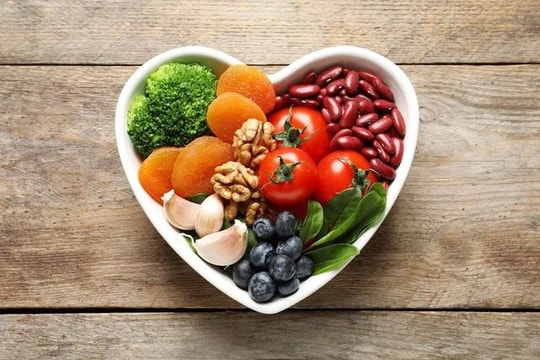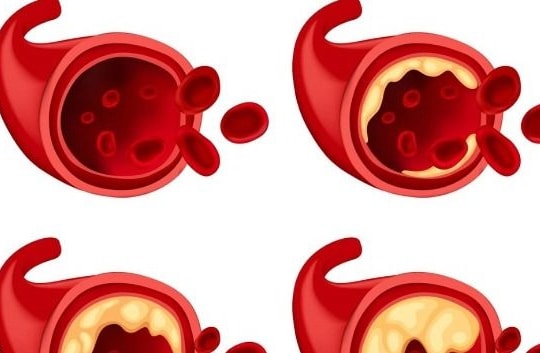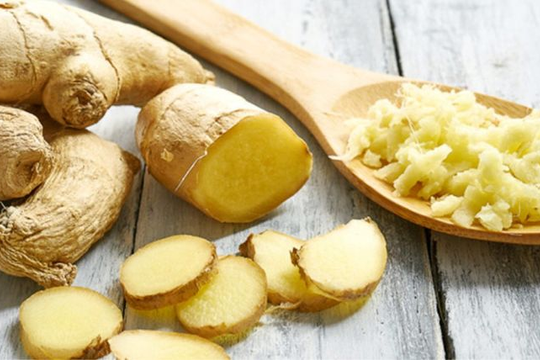Notes on drinking water in cold weather for good cardiovascular health
Dehydration can lead to heart problems. Here are some tips for increasing your water intake in cold weather.
Doctors warn that heart patients should be extra cautious because cold weather increases the risk of heart attacks more than other seasons. One of the causes of heart attacks in winter is dehydration due to lack of water. In addition to increasing the risk of heart attacks, dehydration can affect the immune system, digestion, bone and joint health. If you drink less water in winter, it can cause headaches, constipation and even impaired cognitive function. Here's how to increase your water intake in cold weather to reduce the risk of heart disease.
Dehydration can make the heart work harder
If the body is dehydrated, the amount of blood circulating in the body will decrease. The heart will try to compensate by beating faster, increasing the heart rate. Therefore, dehydration puts stress on the heart because it has to work harder than usual.
2. Ways to increase water intake in cold weather for good heart health
Water is the basic component of the body and accounts for about 50 to 70% of body weight. People tend to drink less water during the cold season, which can lead to dehydration and cause many health problems. To ensure that you drink enough water during cold weather, you can follow some of the following measures:
1.1 Set a reminder to drink water
There are many apps on mobile phones that can set alarms to remind you to drink water. Make sure you set alarms and follow them regularly to avoid dehydration.
1.2 Eat fruits and vegetables
There are many seasonal fruits that have high water content that can be added to your cold season diet. Vegetables and fruits that provide a lot of water to the body include cucumber, Malabar spinach, amaranth, squash, pumpkin, coconut, watermelon, strawberries, grapefruit, papaya, apple, orange… Make sure to eat at least 3 portions of green vegetables and 2 fruits regularly.
1.3 Add vegetable soup and juice to your diet
Incorporate fruit juices in your diet along with soups like mushroom, broccoli, pumpkin to keep your body hydrated.
1.4 Drink warm water
Drinking warm water can be soothing to the throat. Make sure the water is not too hot as this can irritate the throat and cause discomfort. Stick to warm water and avoid cold water on cold days.
1.5 Exercise more
Due to the cold weather, you may want to reduce or stop exercise to suppress your thirst. If you do exercise, make sure you exercise for 45 minutes a day and carry a bottle of electrolyte water or smoothie with you to rehydrate your body.
1.6 Avoid tea and coffee
If you tend to drink a lot of tea and coffee during the cold season, you may want to cut back on your intake. Tea and coffee have diuretic effects and cause the body to urinate more, leading to dehydration, which will only worsen the problem.
3. Does drinking lots of water help prevent heart disease?
The heart is constantly pumping blood around the body, beating on average 72 times a minute and pumping about 7,600 liters a day. Staying hydrated helps the heart do its job and easily pump blood through the blood vessels to the muscles. The heart is less stressed and does not have to work as hard to do its job. This helps the muscles work more efficiently.
Additionally, drinking enough water may reduce the risk of heart failure. Drinking enough water may prevent or at least slow changes in the heart such as left ventricular hypertrophy, which can lead to heart disease.
4. How much water should you drink in cold weather?
The recommended amount of water to drink in cold weather can vary depending on a number of factors, but it is generally less than the usual recommendation of 2-2.5 liters per day. Experts recommend women drink 2.16 liters per day and men drink 2.96 liters.
Tips for staying hydrated in cold weather:
Carry a reusable water bottle: Keep it somewhere easy to reach to remind yourself to drink enough water throughout the day.
Warm drinks:Herbal teas, broths, and warm water with lemon can be satisfying and hydrating alternatives.
Water-rich foods:Fruits and vegetables contribute to natural fluid intake.
Monitor urine color:Light yellow urine indicates good hydration, while dark yellow or amber urine may indicate dehydration./.




